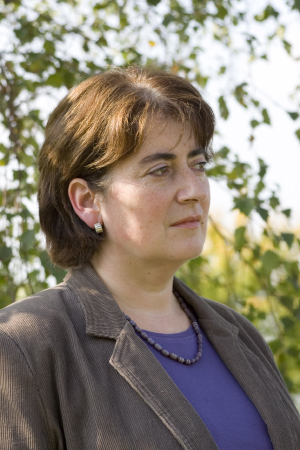Foot and mouth research reveals human tragedy

The 2001 UK foot and mouth disease epidemic was a human tragedy, not just an animal one, according to Lancaster University research published by the British Medical Journal.
The UK’s foot and mouth disease epidemic in 2001 has been described as the most serious event ever to occur in a country previously free of the disease. Between 6.5 million and 10 million animals were slaughtered across the UK and the disaster caused widespread disruption and closure of much of the British countryside for more than a year.
But because the epidemic was treated as an animal problem, little attention has been paid to the human cost of the disaster.
Researchers at Lancaster University’s Institute for Health Research recruited a panel of 54 individuals, representing a wide range of rural workers and residents. Over a period of 18 months, panel members wrote more than 3,000 weekly diaries which were analysed to capture evidence about the impact of the disaster and processes of recovery. They also gave in depth interviews and participated in group discussions.
Their reports showed that life after the foot and mouth epidemic was accompanied by distress, feelings of bereavement, fear of a new disaster, loss of trust in authority and a sense that the value of local knowledge had been undermined.
Distress was experienced well beyond the farming community. Slaughter and clean up workers, council and utility service workers, disposal personnel, community health workers and voluntary organisations were just some of the people in the front line who contributed diaries to the study.
In the aftermath of the disaster, health and social problems included flashbacks, nightmares, uncontrollable emotion, conflict within communities and increased social isolation. In the longer term, there was evidence of stress, anxieties about emissions from disposal sites, loss of confidence in authority, confusion, bitterness and increased fear of unemployment. Many of these effects continued to feature in the diaries throughout the 18-month period.
But the team also found that suffering was alleviated by trusted informal and formal support networks. This implies that statutory and voluntary organisations have a more complex and enduring role after a disaster than has been understood.
The study ‘The Health and Social Consequences of the 2001 Foot and Mouth Disease Epidemic’ calls for more flexibility in disaster planning, rather than the creation of new bodies or more targets and protocols.
Dr Maggie Mort, who co-ordinated the research said: “Four years on, the effects of the worst disaster to hit rural Britain since the second world war are still being felt. People who have experienced a disaster may not be sick as a result, but they need careful and appropriate support to rebuild their lives and regain confidence.”
They recommend joint service reviews of what counts as a disaster, regular sharing of intelligence, debriefing and peer support for front line workers, increased community involvement in disaster management, and wider more flexible access to regeneration funding and rural health outreach work.
• The research was undertaken by Dr Maggie Mort, Dr Ian Convery, Dr Cathy Bailey and Ms Josephine Baxter at the Institute for Health Research, Lancaster University
The research has received extensive national and regional coverage:
Television Coverage: BBC 1, BBC North West Today/Tonight, ITV Granada, ITV Central, Border TV, Central South News.
Radio Coverage: Radio 4 News, BBC Radio 4 Farming Today, Radio 5 Live, Radio 2, The Bay, BBC Radio Lancs, BBC Radio Cumbria, BBC Essex, BBC Radio Scotland, BBC Wales, British forces radio, Border Telegraph, BBC Radio Wiltshire, BBC Radio Swindon, BBC Radio York, BBC Radio Newcastle, BBC Radio Lincolnshire, BBC Radio Cornwall, BBC Radio Humberside, BBC Radio Stoke, BBC Radio Devon.
Newspapers: Westmorland Gazette, Western Mail, Evening Chronicle, Express and Star, Northern Echo, Cumberland and Westmorland Herald, Yorkshire Post, Bolton Evening News, Derby Evening Telegraph, Evening Gazette, Evening Press York, Lancashire Evening Post, Lincolnshire Echo, Leicester Mercury, Western Daily Press, North West Evening Mail, Telegraph & Argus (Bradford), The Journal (Northumberland), Western Morning News (Cornwall/Devon).
Online Coverage: The Guardian, BBC online, The Scotsman, Sky News Website, Medical News Today, Daily Mail, IC Wales, This is Network News, Yorkshire Post, IC Solihull, Westmorland Gazette, Lifestyle, Craven Herald and Pioneer, DeHavilland, The Cumberland News, News & Star, This is Clitheroe.